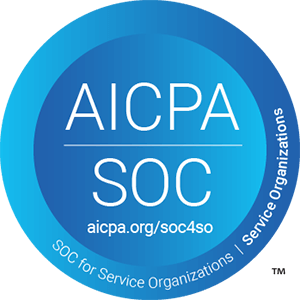Performance management is often seen as a necessary evil – paperwork, awkward conversations, and annual rituals. But when done right, it’s a powerful tool for transforming your organization into a thriving hub of motivated and high-performing individuals. But how do you ensure your team understands and embraces this crucial process?
The key? Effective performance management training. In this blog post, we discuss how effective training unlocks motivated, high-performing individuals & transforms your organization. Read along!

What is Performance Management Training?
Performance management training is a structured educational process aimed at equipping employees with the necessary skills and techniques to effectively manage and improve performance within an organization. It covers aspects such as goal setting, feedback delivery, performance appraisal methods, and employee professional development strategies.
Through targeted training initiatives, individuals learn to set clear objectives, provide constructive feedback, conduct fair evaluations, and support employee growth. Ultimately, employee performance management training fosters a culture of accountability, transparency, and continuous improvement, driving organizational success.
Why is Performance Management Training Important?
Performance management training holds significance for both employees and organizations, playing a crucial role in fostering individual growth and organizational success.
Let’s take the example of Annie, a marketing executive in a fast-paced advertising agency. She is passionate about her work but often feels uncertain about her performance due to vague expectations and sporadic feedback from her manager. Without proper training in performance management, Annie struggles to align her efforts with organizational goals and feels disengaged from her work.
For employees like Annie, performance management training offers several benefits:
Clarity and Direction: Training in performance management provides employees with clear expectations and objectives, helping them understand what is expected of them in their roles. This clarity enables employees to focus their efforts on tasks that align with organizational priorities.
Feedback and Recognition: Proper training equips employees with the skills to give and receive feedback effectively. Constructive feedback helps employees identify areas for improvement and recognize their accomplishments, fostering a sense of accomplishment and motivation.
Skill Development: Performance management training often includes opportunities for skill development and growth. Employees learn to identify their strengths and weaknesses, allowing them to take proactive steps to enhance their skills and further their careers.
Increased Engagement: When employees receive regular feedback and feel supported in their development, they are more likely to be engaged and committed to their work. Performance management training fosters a culture of accountability and empowerment, leading to higher levels of employee satisfaction and retention.
With Performance Management tools like Peoplebox, you can send automated engagement surveys to assess employee satisfaction and gather feedback on various aspects of the performance management process.

It must be noted that effective performance management training is essential not just for the employees, but also for the organization. Now let’s consider the impact of performance management training from an organizational perspective:
In a scenario where performance management training is overlooked, organizations may experience several challenges:
Poor Performance Alignment: Without clear performance expectations and goals, employees may struggle to align their efforts with organizational priorities. This lack of alignment can hinder progress toward strategic objectives and impede overall organizational success.
Decreased Productivity: In the absence of effective performance management processes, employees may not receive timely feedback or guidance on their performance. This can lead to inefficiencies, missed deadlines, and decreased productivity across the organization.
Low Employee Morale: When employees feel uncertain about their performance or lack opportunities for growth and development, morale can suffer. This can result in higher turnover rates, increased absenteeism, and a negative impact on the overall workplace culture.
Missed Opportunities for Improvement: Without proper training in performance management, managers may struggle to identify and address performance issues proactively. This can result in missed opportunities for improvement and development, ultimately hindering the organization’s ability to adapt and thrive in a competitive environment.
By investing in training programs that empower individuals to excel in performance management, organizations can create a culture of continuous improvement and achieve their strategic goals effectively.
Different Types and Examples of Performance Management Training
Performance management training isn’t a one-size-fits-all approach. To effectively equip employees with the necessary skills and knowledge, you need to tailor the training to their specific needs and roles within the organization. Here are some different types and examples of performance management training you can consider:
Foundational Training:
This type of training is ideal for new employees or those unfamiliar with the organization’s performance management system. It covers the basics such as:
The performance management process: This includes setting goals, receiving feedback, conducting reviews, and development opportunities.
Setting OKRs: This teaches employees how to craft effective goals that align with the organization’s goals.

Understanding performance reviews: This explains the purpose of reviews, what to expect, and how to use them for improvement.
Example: A half-day workshop on the organization’s performance management system, including interactive exercises and role-playing scenarios.
Skill-Specific Training:
This type of training focuses on developing specific skills needed for effective performance management, such as:
Giving and receiving feedback: This teaches employees how to provide constructive and actionable feedback, as well as how to receive feedback effectively.

and engaging performance conversations with their managers.
Self-assessment: This helps employees reflect on their performance and identify areas for improvement.
Example: A two-hour session on providing effective feedback, with case studies and practice opportunities.
Role-Based Training:
This type of training caters to the specific needs of different roles within the organization, such as:
Manager training: This focuses on how to conduct effective performance reviews, provide coaching and feedback, and support employee development.
Employee training: This focuses on understanding performance expectations, setting goals, and communicating effectively with managers.
Example: A full-day training program for managers covering performance review best practices, performance coaching techniques, and development strategies.
Technology-Based Training:
This type of training leverages online platforms and resources to deliver learning in an engaging and accessible way. Examples include:
E-learning modules: These provide interactive learning experiences on various performance management topics( Like LinkedIn Learning).
Microlearning videos: Short, bite-sized videos on specific skills like giving feedback or setting goals.
Simulations and games: These allow employees to practice their skills in a safe and simulated environment.
Example: A series of performance management training courses accessible on-demand through the company learning management system.
With Peoplebox, you receive premium access to white-glove coaching services, featuring a personalized coaching plan tailored to your needs for mastering and utilizing the software. This includes regular one-on-one coaching sessions with a dedicated coach, ensuring comprehensive support and guidance throughout your journey.
Ultimately, the best type of performance management training is the one that meets the specific needs of your organization and its employees. By choosing the right training approach and content, you can empower your employees to take ownership of their performance and contribute to the organization’s success.
Key Elements of Effective Performance Management Training
Performance management training isn’t just a box to tick; it’s the key to unlocking your employees’ true potential and fueling organizational success. But what makes training truly effective? Here are the essential elements that will transform your program:

Goal Setting and Alignment:
From siloed aspirations to shared vision: Help employees understand how their individual goals contribute to the bigger picture. Align them with departmental and organizational objectives, fostering a sense of purpose and collaboration.
With Peoplebox, employees get a comprehensive view of how their work contributes to the overall organizational goals.

Frameworks for focus: Introduce effective goal-setting frameworks like OKRs, equipping employees to craft clear, measurable, and achievable objectives that drive results. To make it easier for you to help your employees with OKRs, we have created the ultimate OKR cheat sheet you can share with them today!
Performance Feedback and Development:
Feedback as fuel, not fear: Train managers to provide constructive and timely feedback that focuses on specific behaviors and actionable steps for improvement. Foster a culture where feedback is seen as a valuable tool for growth, not punishment.
Conversations that count: Equip managers with skills to conduct effective performance conversations, fostering open dialogue, clear expectations, and mutual understanding.
Development plans: Move beyond generic training by teaching managers to create individualized development plans tailored to each employee’s strengths, weaknesses, and career aspirations.
Beyond one-on-one: Explore various feedback methods like surveys and 360-degree feedback to gather diverse perspectives and provide a holistic view of performance.

Coaching and Mentoring:
Building bridges, not walls: Train managers to cultivate strong relationships with their teams, built on trust, open communication, and a genuine desire to see them succeed.
Beyond reviews, ongoing support: Equip managers with coaching skills to provide continuous guidance and support, helping employees overcome challenges and reach their full potential.
Mentorship: Implement effective mentoring programs that connect seasoned professionals with newer employees, fostering knowledge transfer, career guidance, and a sense of belonging.
Performance Measurement and Recognition:
Metrics that matter: Ensure performance metrics are fair, objective, and aligned with organizational goals. Avoid subjective measures that hinder motivation and clarity.
Performance Measurement platforms like Peoplebox let you measure KPIs against targets to ensure your decisions are always aligned with the goals.

Celebrate success, big and small: Recognize and reward high performance through incentives, awards, and public acknowledgement. Celebrate individual and team achievements to boost morale and motivation.
Remember, impactful training goes beyond technical skills. Foster a positive learning environment, encourage open communication, and provide ongoing support to ensure your employees leave empowered and equipped to excel.
Performance Management Training For Managers
- Equip managers with effective coaching skills to nurture talent, provide timely and constructive feedback, and cultivate strong team relationships. Role-playing scenarios and practical exercises help hone their active listening, communication, and motivation techniques.
- Make managers confident in conducting performance reviews. Train them on setting clear expectations, using objective metrics, and delivering meaningful feedback that fuels improvement. Interactive workshops with peer-to-peer feedback and case studies solidify these skills.
- Address the often-dreaded task of managing underperforming employees. Train managers on conducting difficult conversations, outlining corrective action plans, and providing fair and firm guidance. Include simulations and expert-led discussions to navigate these sensitive situations effectively.
Performance Management Training For Employees
- Empower employees to set OKRs aligned with team and organizational objectives. Interactive workshops guide them through crafting meaningful, measurable, and achievable objectives that drive their performance.
- Develop their ability to receive and respond to feedback effectively. Teach them how to interpret and utilize feedback for growth, ask clarifying questions, and demonstrate their commitment to improvement. Group discussions and practice sessions build confidence and receptivity.
- Foster a sense of ownership for performance improvement. Train employees on self-assessment techniques, identifying areas for development, and proactively seeking resources and support. Encourage them to be active participants in their growth journey through interactive exercises and self-reflection prompts.
Conducting Performance Reviews on Peoplebox:
With Peoplebox, conducting performance reviews becomes a streamlined and efficient process. Managers can easily access performance data, set clear objectives, and provide feedback through the platform. Features such as goal tracking, feedback collection, and performance analytics enable managers to conduct fair and objective reviews, identify areas for improvement, and recognize achievements.
Additionally, Peoplebox offers customizable templates and automated reminders to ensure that performance reviews are conducted consistently and effectively across the organization. Ready to streamline your performance management process with Peoplebox? Contact us today to learn more and schedule a demo!









